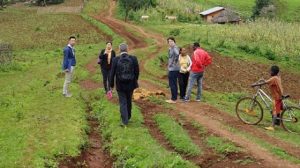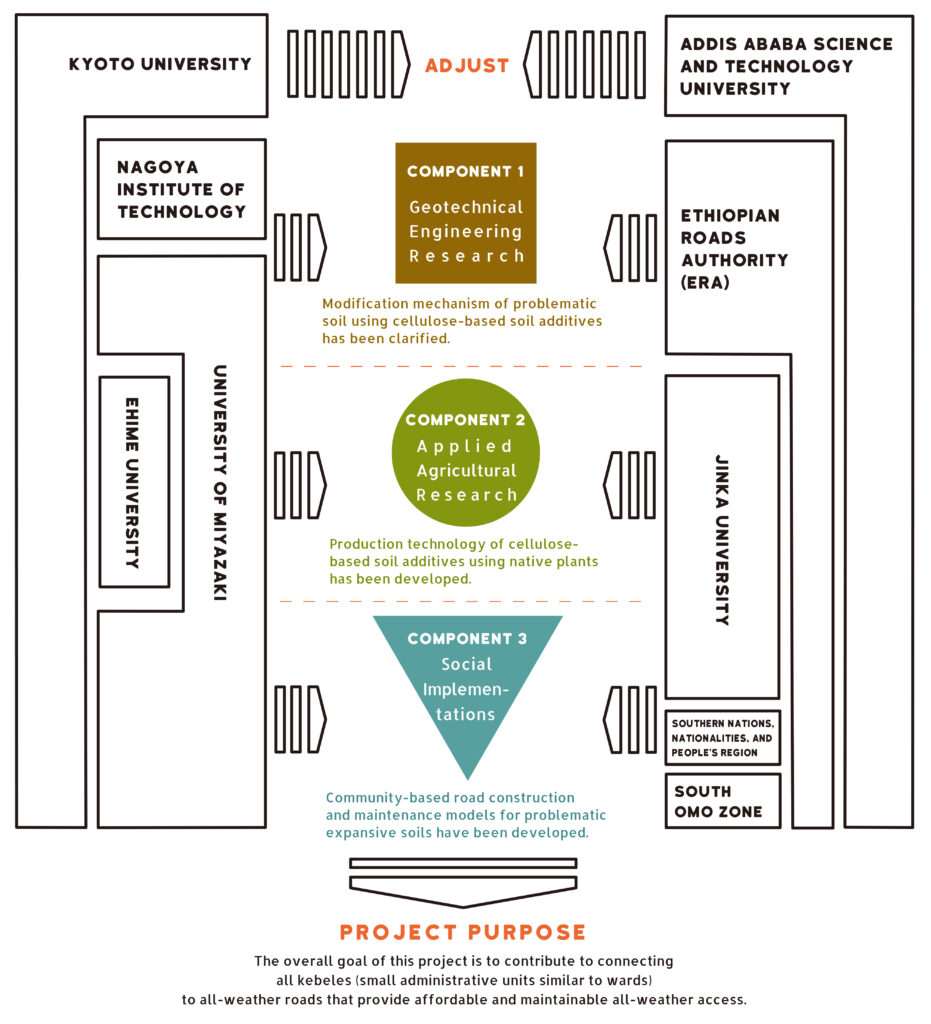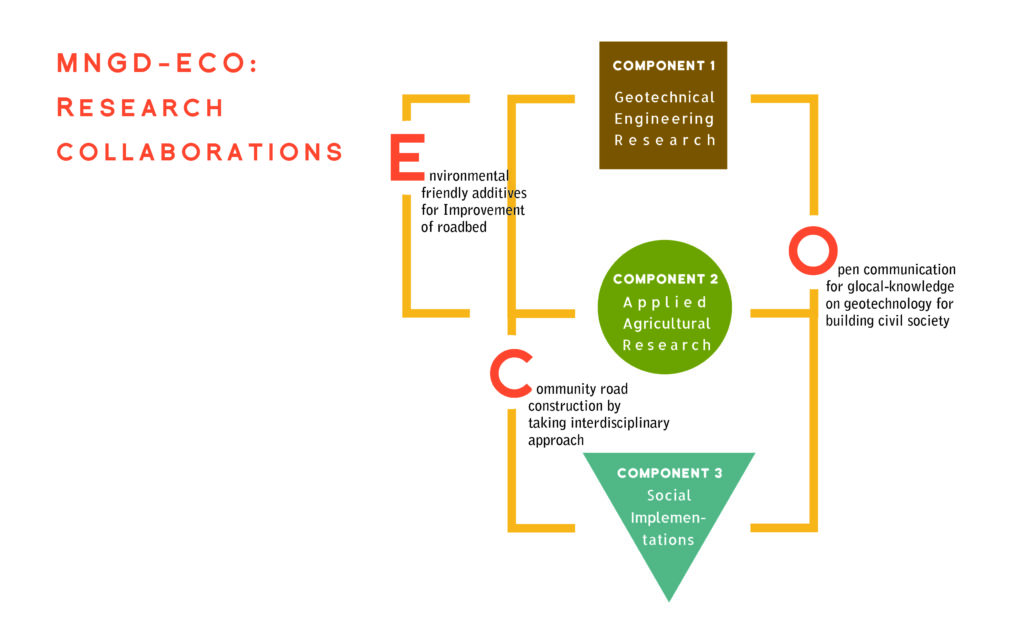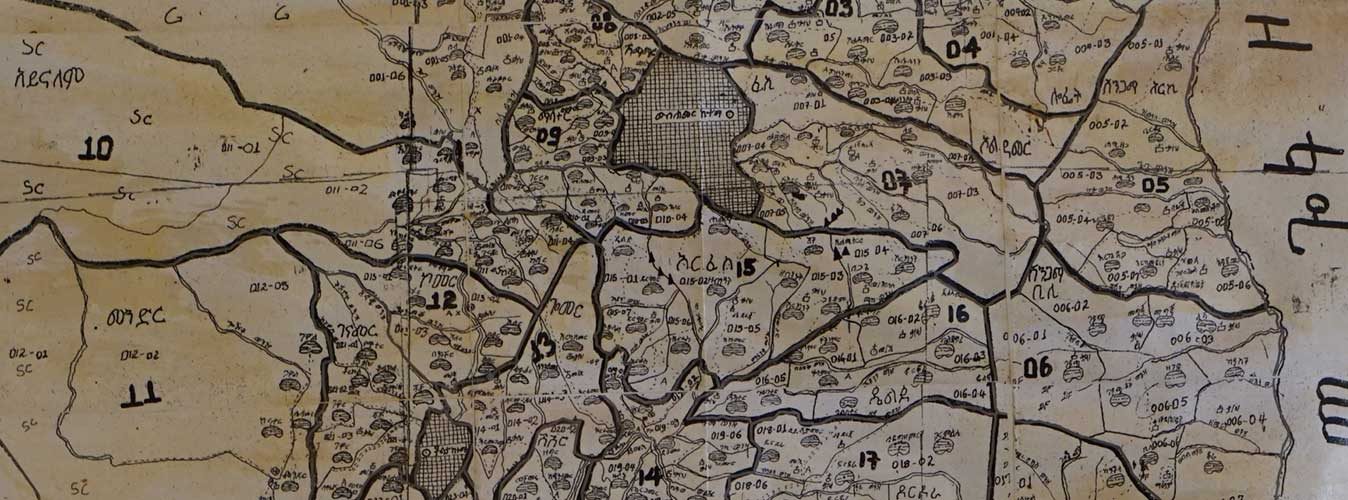Issues and Problems

Road infrastructure development is crucial for a country’s socioeconomic development. Expansive soils that cover more than 10% of the surface area of Ethiopia have been a major constraint in road network development. These soils pose a significant hazard to the foundations of road infrastructure. Expansive soils alter their volume according to changes in water content; swelling pressure causes heaving or lifting of road structures, whilst shrinkage pressure causes differential settlement.
Conventionally, costly measures have been taken to resolve this, such as replacement of expansive soils with better quality ones. To overcome the shortage of good quality soils and their high transportation cost, soil additives have been introduced as an alternative method of improving soil quality. However, due to limited research on their effectiveness, usage of soil additives has not been efficiently adopted.
Project purpose
The purpose of this project is to develop a system of maintaining unpaved roads using labor-intensive technology and locally available materials. This system will be effective in reducing road disasters in areas of rural Ethiopia that have expansive soils.
The overall goal of this project is to contribute to connecting all kebeles (small administrative units similar to wards) to all-weather roads that provide affordable and maintainable all-weather access. It will also contribute towards meeting the needs of rural communities by applying innovative soil stabilizing technology that uses local resources.
To achieve this overall goal, the project will develop plant-derived soil additives and standardize the technology for effective application to national and local road infrastructure development. Additionally, by adopting local resource-based approach that effectively utilizes local materials and unskilled labor, the project aims to improve rural accessibility, thereby creating rural employment for women and youths by hiring them for the construction and maintenance work of rural road networks.



